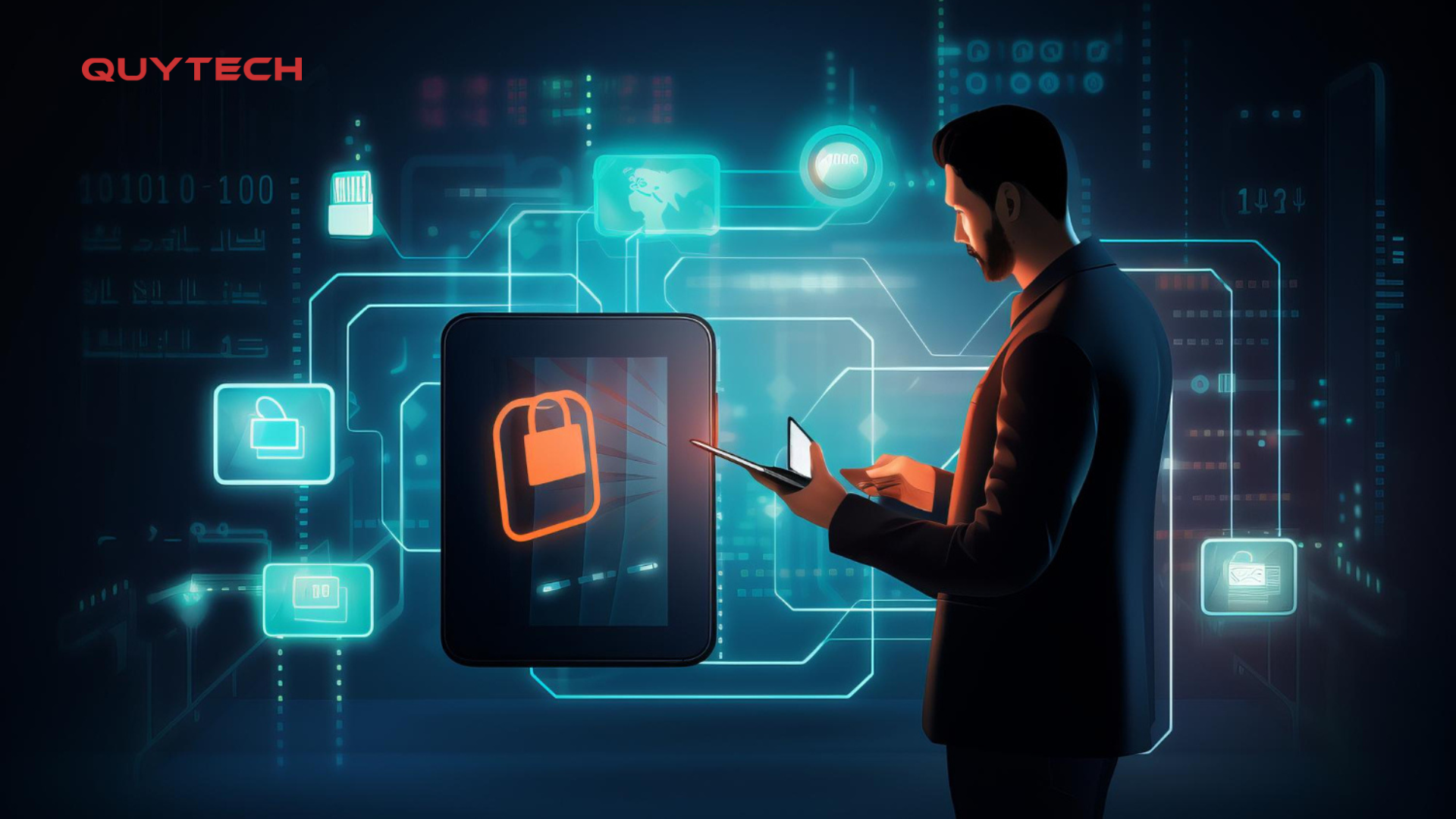AI Tokens for Data Ownership and Control in Future-Proofing Apps Development: Detailed Understanding
 Ewenjlin Smith
Ewenjlin Smith
In mobile applications, data reigns supreme. From personalized recommendations to intelligent automation, data fuels innovation across industries. However, with the rise of data-driven applications comes the critical challenge of data ownership and control.
Users are increasingly concerned about who has access to their data and how it's being used. In response to this growing demand for data sovereignty, developers are turning to AI tokens as a solution to future-proof their apps.
The Challenge of Data Ownership in App Development
In traditional app development, users often relinquish control of their data in exchange for access to services. This lack of transparency and ownership can lead to privacy concerns and data misuse.
Moreover, centralized data storage poses security risks, making sensitive information vulnerable to breaches and hacks.
However, with a trusted AI token development company, there's a promising shift towards decentralized solutions.
The Promise of AI Tokens
AI tokens represent a paradigm shift in data ownership and control. By leveraging blockchain technology and smart contracts, AI tokens empower users to retain ownership of their data while granting permission for its use. This decentralized approach ensures transparency, security, and fairness in data transactions.
AI tokens are cryptographic tokens that utilize artificial intelligence algorithms to manage data ownership and access rights. These tokens are typically built on blockchain platforms, enabling secure and transparent data transactions.
Benefits of Using AI Tokens
Data Ownership and Control
One of the most significant advantages of AI tokens is their ability to empower users with full control over their data.
Unlike traditional apps where users often relinquish control of their data upon usage, AI tokens allow individuals to retain ownership throughout the data lifecycle.
This means users have the authority to grant or revoke access to their data as needed, putting them in the driver's seat of their digital footprint.
By having control over who can access their data and for what purposes, users can ensure their privacy and security are safeguarded.
Transparency and Immutability
AI tokens leverage blockchain technology to ensure transparency and immutability in data transactions.
Every data transaction recorded on the blockchain is cryptographically secured and cannot be altered or tampered with, providing an immutable record of data exchanges.
This transparency eliminates the possibility of data manipulation or fraud, fostering trust between users and app developers. Users can have confidence that their data transactions are transparent and verifiable, enhancing the overall integrity of the app ecosystem.
Fair Compensation and Incentives
Another compelling benefit of AI tokens is the opportunity for users to receive fair compensation for their data. In traditional app models, users often provide valuable data without receiving any tangible benefits in return.
However, AI tokens introduce mechanisms for users to monetize their data through various channels. Users can participate in data marketplaces where they can sell their data to interested parties, such as advertisers or researchers.
Additionally, users may receive rewards or incentives for sharing valuable insights or contributing to the improvement of app functionalities.
This fair compensation model incentivizes users to actively engage with the app ecosystem while ensuring they are adequately rewarded for their data contributions.
Data Ownership and Control
AI Tokens and Data Privacy
Privacy is a fundamental concern in the digital age, with regulations like GDPR and CCPA emphasizing protecting user data. AI tokens enable granular control over data privacy settings, ensuring that only authorized parties can access sensitive information.
AI Tokens and Data Monetization
In addition to privacy, AI tokens open up new opportunities for data monetization. Users can choose to sell their data to third-party advertisers or participate in data-sharing programs while maintaining control over how their information is used.
Integrating AI Tokens into App Development
Token Issuance and Distribution
The process of integrating AI tokens into app development begins with token issuance and distribution. Developers must design a tokenomics model that incentivizes user participation while ensuring equitable distribution of tokens.
Access Control and Authentication
Access control mechanisms are crucial for safeguarding user data. With AI tokens, developers can implement robust authentication protocols to verify user identities and regulate data access based on predefined permissions.
Data Sharing and Collaboration
AI tokens facilitate secure data sharing and collaboration among users and developers. By leveraging smart contracts, developers can establish transparent data-sharing agreements that govern how data is exchanged and utilized within the app ecosystem.
Case Studies
Example 1: Data-Driven Healthcare App
Imagine a healthcare app that utilizes AI tokens to securely store and share patient data. Patients have full control over who can access their medical records, while healthcare providers can access anonymized data for research purposes.
Example 2: Personalized Education Platform
In the education sector, AI tokens enable personalized learning experiences while protecting student privacy. Students retain ownership of their educational data, allowing them to share insights with educators or participate in research studies.
Future Trends
AI Tokens and Blockchain Technology
As blockchain technology continues to evolve, AI tokens will become more sophisticated, offering enhanced security and scalability. Moreover, interoperability between different blockchain networks will enable seamless data exchange across platforms.
Ethical Considerations in AI Token Development
Ethical considerations are paramount in AI token development, especially concerning data privacy, consent, and algorithmic bias. Developers must prioritize transparency and fairness to ensure that AI tokens benefit users without infringing on their rights.
Conclusion
AI tokens represent a groundbreaking solution to the challenges of data ownership and control in app development. By embracing this innovative technology, developers can build apps that prioritize user privacy, security, and autonomy. As we look to the future, AI tokens will play a central role in shaping the next generation of data-driven applications.
Subscribe to my newsletter
Read articles from Ewenjlin Smith directly inside your inbox. Subscribe to the newsletter, and don't miss out.
Written by

Ewenjlin Smith
Ewenjlin Smith
Hi, I'm Ewenjlin Smith, a Business Analyst at Quytech. My expertise lies in utilizing data-driven insights and strategic planning to enhance business operations. With a proven history of optimizing processes, I am committed to fostering sustainable growth and boosting profitability through analytical proficiency.